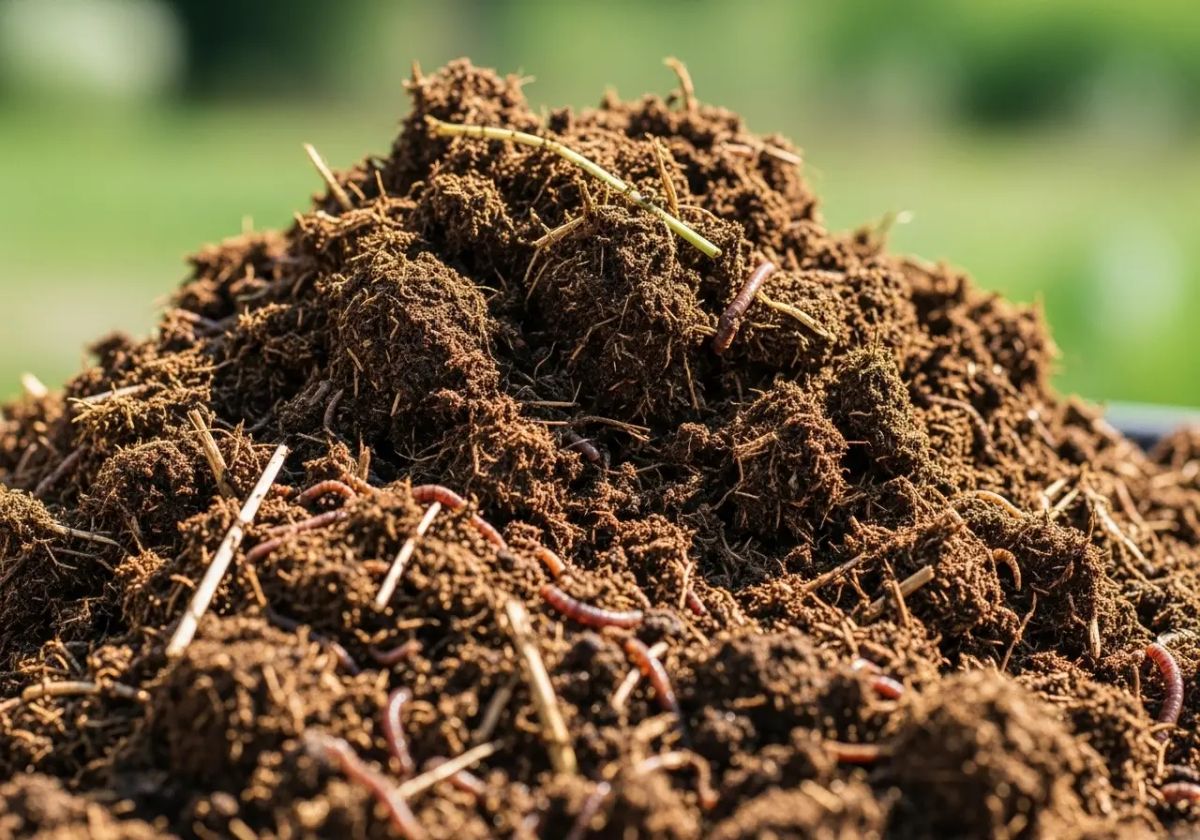Plants need food to grow. Healthy soil provides a lot of that food, but sometimes plants need more. This is where fertilizer comes in.
Organic fertilizers are a popular choice. The global organic fertilizer market is projected to continue its strong growth through 2025 as more gardeners move away from synthetic chemicals. This guide explains how organic fertilizers work and how to use them.
What is Organic Fertilizer?
Organic fertilizers come from natural sources. They are made from things that were once alive, like plants, animal manure, and minerals.
They work differently than synthetic fertilizers.
- Organic fertilizers feed the soil. Microorganisms in the soil break down the organic matter, slowly releasing nutrients to the plant. This improves soil health over time.
- Synthetic fertilizers feed the plant directly. They provide a quick hit of nutrients but do nothing to improve the soil itself.
Understanding N-P-K Ratios
Fertilizer bags have three numbers on them. This is the N-P-K ratio. It tells you the percentage of three main nutrients.
- N is for Nitrogen: This nutrient promotes green, leafy growth.
- P is for Phosphorus: This helps with root growth, flowers, and fruit development.
- K is for Potassium: This helps with overall plant health and disease resistance.
A bag labeled 5-10-5 is 5% nitrogen, 10% phosphorus, and 5% potassium. You can choose a fertilizer with the right ratio for what you are growing.
Common Types of Organic Fertilizer
There are many types of organic fertilizers. They can be grouped into two main categories.
Plant-Based Fertilizers
These come from plants..
- Compost: This is the best all-around soil amendment and a mild, balanced fertilizer. You can make your own compost to create a free source of nutrients.
- Alfalfa Meal: This provides a good boost of nitrogen and other minerals.
- Kelp Meal: This is made from dried seaweed and is a great source of potassium and over 60 micronutrients.
Animal-Based Fertilizers
These come from animal products.
- Bone Meal: This is made from ground animal bones. It is very high in phosphorus, which is good for flowering plants and root vegetables.
- Blood Meal: This provides a very high dose of nitrogen. It works fast but can burn plants if you use too much.
- Worm Castings: This is another name for worm manure. It is a very gentle, balanced fertilizer that will not burn plants.
How to Apply Organic Fertilizer
How you apply fertilizer depends on its form. Most organic fertilizers are either granular or liquid.
Granular Fertilizers
These are dry pellets or powders. You mix them into the soil. They are slow-release, meaning they break down and feed your plants over several weeks or months. You can add granular fertilizer to your DIY potting mix or mix it into the soil before planting.
Liquid Fertilizers
These are concentrated liquids that you mix with water. You then water your plants with the solution. Liquid fertilizers provide a quick boost of nutrients. They are good for hungry plants like tomatoes in pots that need regular feeding.
When to Fertilize Your Garden
You do not need to fertilize all the time. Over-fertilizing is a common gardening mistake that can harm your plants.
The best time to add granular fertilizer is when you prepare your soil for planting. For heavy-feeding plants, you can apply a second dose mid-season. Liquid fertilizers can be applied every 2-4 weeks during the growing season for plants in your container garden.
As one expert from the University of California Agriculture and Natural Resources puts it, "The goal of fertilizing plants is to supply them with the right amount of nutrients at the right time." Stop fertilizing about a month before your first frost date to let your plants prepare for winter.
Frequently Asked Questions
Can you use too much organic fertilizer?
Yes. While it is harder to burn plants with organic fertilizers than with synthetics, it is still possible. High-nitrogen fertilizers like blood meal can easily damage plants if you apply too much. Always follow the instructions on the package.
What is the difference between compost and fertilizer?
Compost is a soil amendment that also acts as a mild, slow-release fertilizer. Its main job is to improve soil structure and health. Fertilizer's only job is to provide a concentrated dose of specific nutrients.
How long does it take for organic fertilizer to work?
It is a slow process. Organic fertilizers must be broken down by soil microbes before plants can use the nutrients. This can take several weeks. Liquid organic fertilizers work faster, often within a few days.
Are organic fertilizers safe for pets?
Not always. Some products, like bone meal or blood meal, can be very attractive to dogs but can cause digestive problems if eaten. Keep pets away from the area after you apply these types of fertilizers.
What is the best all-purpose organic fertilizer?
Compost is the best foundation for any organic garden. For a balanced granular fertilizer, look for one with a relatively even N-P-K ratio, like 4-4-4.
Do I need to fertilize if I use compost?
For many plants, a good amount of compost provides all the nutrients they need. But heavy feeders like tomatoes, corn, and squash will benefit from extra fertilizer during the growing season.
